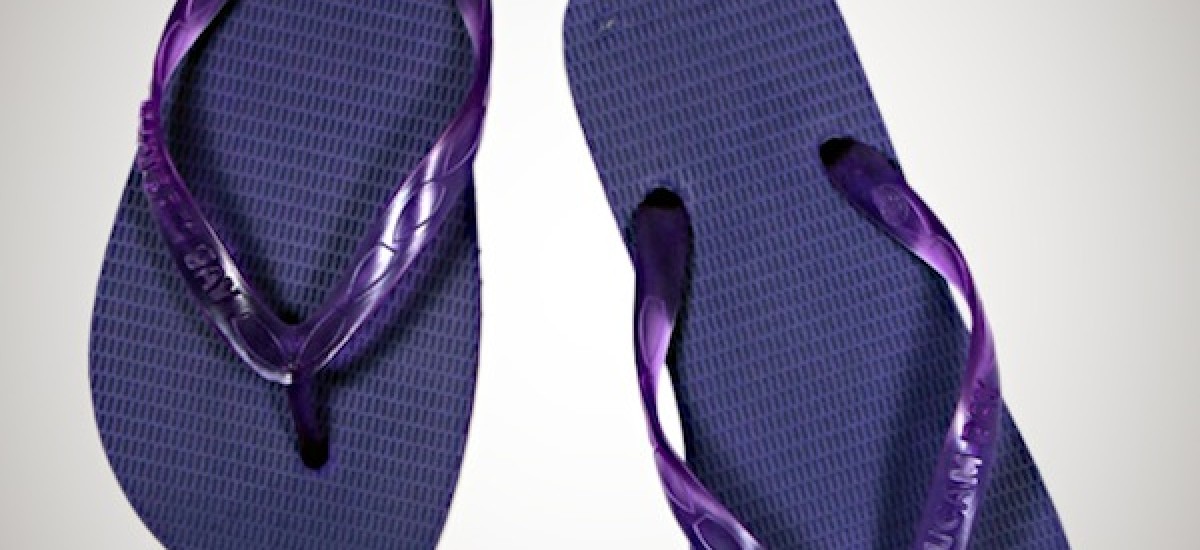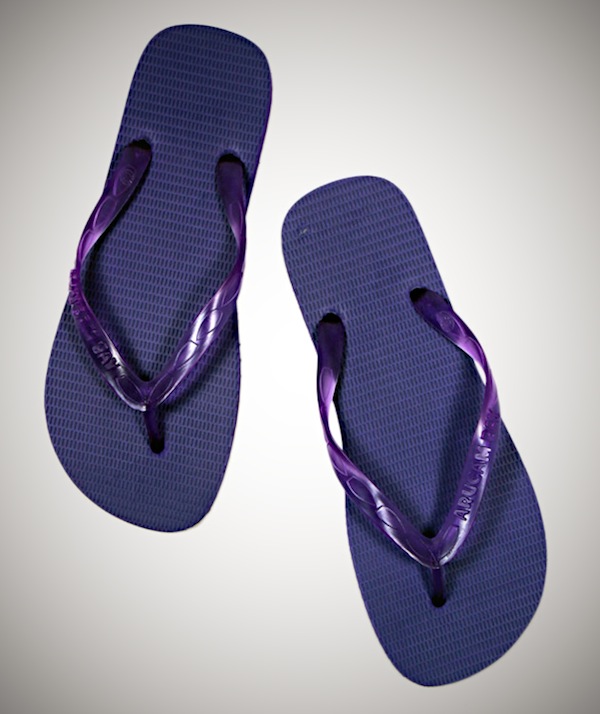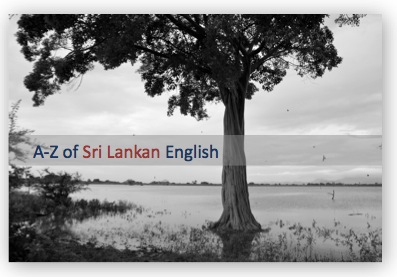Image courtesy Odel
They’re called thongs in Australia, jandals in New Zealand, Hawaii chappals in India and Pakistan. According to Wikipedia, they’re known as slip-slops in South Africa, go-aheads in the South Pacific, japonkis in Poland, and vietnamkis in Russia. The standard term in the UK and the US is flip-flops. Here in Sri Lanka they’re most commonly referred to as rubber slippers; also bathroom slippers, and Bata slippers (or Batas). And some of us like to talk about our Arugam Bays.
To a speaker of British English, slippers are an item of footwear worn inside the house. They are usually closed but loose-fitting, and often fur-lined to keep your toes warm. It’s unlikely that you would step outside in them. But in other less chilly parts of the English-speaking world, the word slippers is more likely to refer to any type of open sandal, usually made of leather, plastic or rubber, including flip-flops. In South Asia, slippers are the ubiquitous footwear except when a more formal closed shoe is required.
This raises a dilemma for teachers of English. Should we teach learners that rubber slippers must be called flip-flops, that other types of open footwear must be called sandals, and that the word slippers can only refer to furry indoor footwear, as standard dictionaries such as the Oxford Advanced Learners’ Dictionary would have us believe?
Personally, I do not believe that Sri Lankan learners should be penalised or corrected for using the words slippers and rubber slippers as they are used in standard SLE. If foreign teachers of English are unfamiliar with the local variety of English, it is up to them to familiarise themselves with it as far as possible. And while rubber slippers may be considered specific to SLE, the widespread use of slippers to mean any type of open sandal is one which modern dictionaries really ought to reflect.
However, learners of English need to be made aware of the differences between SLE and other varieties of English. A word such as flip-flops is likely to be encountered in many international English contexts, including of course here in Sri Lanka. And the truth is that, despite its playful onomatopoeic derivation, flip-flops enjoys a higher prestige status than the more straightforwardly descriptive rubber slippers thanks to its international UK/US credentials.
The flip-flops/rubber slippers dilemma is of course just one rather trivial example of an issue facing teachers of English in Sri Lanka: how to give due recognition to the local variety of English, and raise learners’ awareness of its validity in a Sri Lankan context, while at the same time making them aware of international standards, and empowering them to make their own choices about how they use the language?
###
A-Z of Sri Lankan English is“an all-new, occasional alphabetical dip“into the variety of English spoken in Sri Lanka, published exclusively on“Groundviews. The original A-Z of Sri Lankan English was published in the travelsrilanka magazine, and can be found here.



